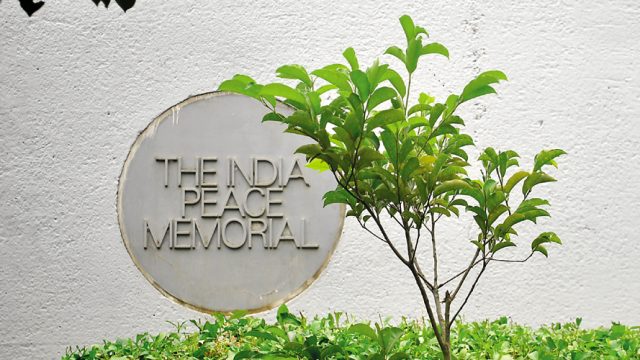In 1944, 16km away from present-day Imphal, there was a fierce battle fought between the Japanese and the British Armies on a small hillock now known as Red Hill. This ominous name came from the huge loss of lives on both sides, especially the Japanese, during the battle. Quite ironically, most of those slaughtered were Indians, those in service of the Empire, and those who fought on the Japanese side with Subhash Chandra Bose’s Indian National Army. The latter had to retreat, its hopes of a military-inspired Indian Independence in tatters.
Today, the site, locally called Maibam Lotpaching, is a peace memorial. When I visited a couple of years ago, my guide H. Radhakrishna vividly described the bloody story of ’44. It’s a barren hillock now, and all that exists from that fateful day is a rusty old cannon. A short distance from the hillock lies a serene spot covered by trees, where stands the India Peace Memorial. It was constructed by the Japanese government and inaugurated in 1994, to mark the 50th anniversary of the Battle of Imphal.
Evidently, it’s an important site for both Indian as well as Japanese war veterans.
There are other reminders of the war here. Some 28km from Red Hill lies Moirang, home to the INA War Museum, the spot where Bose had unfurled the Indian tricolour for the first time. Manipur was one of the few places in India to witness actual fighting during the war, and despite the sanitised memorials, it felt quite amazing to come across World War II sites in my own backyard! The memorial is certainly worth a visit!




